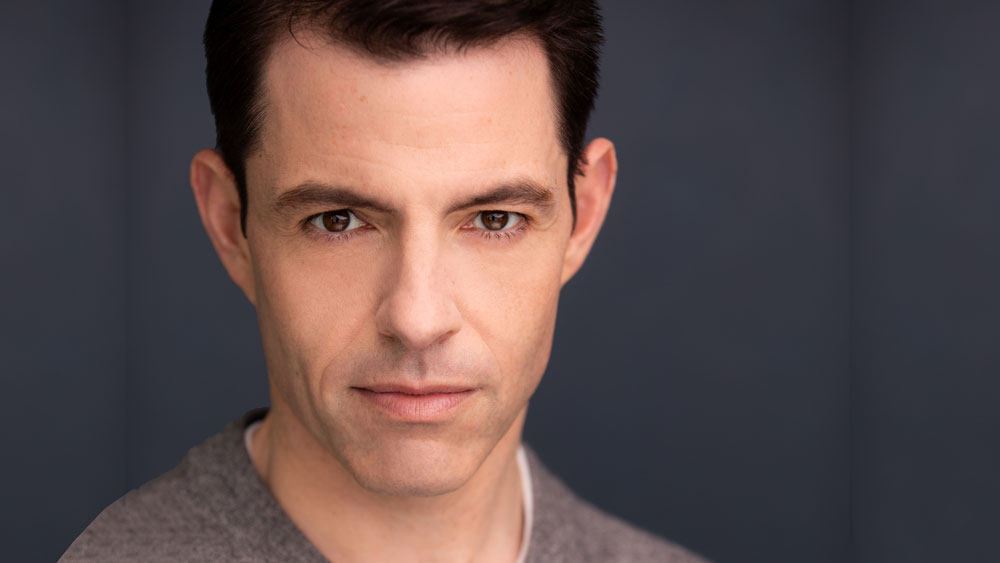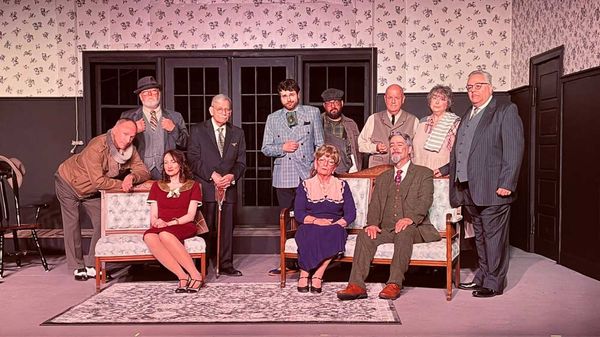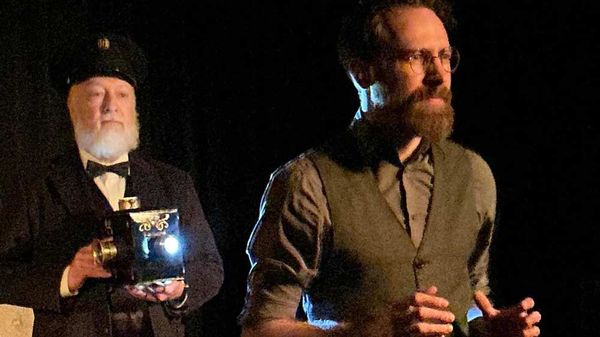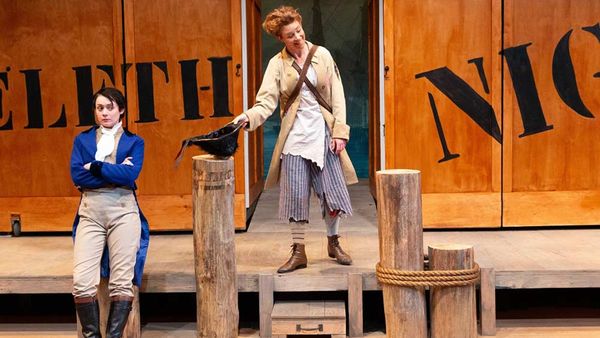January 30, 2012
Stopped Bridge of Dreams
Wickham Boyle READ TIME: 4 MIN.
John Jesserun has been making theater which incorporates text, movement, architecture, film, video, images, sounds, amazing actors and non-linear wonderment for long enough that the MacArthur Foundation has noticed his gleam and awarded him a coveted "genius grant."
Jesserun's back story is intriguing enough to warrant a diversion here, as I believe it sets him apart from many of the perennials working in the downtown or experimental genre. In 1976, he began as a content analyst for CBS TV and then went on to work for Dick Cavett, really one of the smartest people ever to grace the boob tube.
In 1982, he began his iconoclastic serial called "Chang in a Void Moon" which was performed at the Pyramid Club. This was where I first encountered the work, the spirit, and the mind-blowing edges of Jesserun's art. "Chang" continues now in its 80th episode. His works have been marveled at all over the world from Frankfort to Tokyo, the big apple to the mini-apple. Wherever experimental works reign supreme, Jesserun's plays and film are seen.
The works are often difficult to explain, there is no clear Act 1 synopsis moving toward an Act 4 d�nouement, rather it is dreamscape with story telling woven throughout. In "Stopped Bridge of Dreams," the work opens with a conversation between a man, in this incarnation Preston Martin and a woman who may or may not be his mother, played by the ever perfect Black-Eyed Susan.
We learn that the table and chairs they sit in, and the projections where we see them from 360 degrees are all on an airplane, which houses a flying brothel. Susan play Madame X, yes the Madame whose voice never rises above a whisper in rage, sweetness, fear, or sadness, and this sotto voce nature draws the audience and cast members in as they literally lean to catch the nuance of every word.
Susan and Martin fight over everything. Is he her son Hiroshi, how many abortions has she had, is he the one who survived, is he kept as a serf on board to service a non-specified clientele who strategically steal his kimono after every song? We learn that Hiroshi, played with a hollowed-out sleaziness by Martin, wants to get off the plane and start a life, whatever that may be.
Films and videos and still images play on the enormous video screens, which bisect the theater presenting mirror images depending on if you are seated to the east or west in the huge cavernous LaMama Annex theater (now renamed the Ellen Stewart Theater after the founder who passed away a year ago).
Sometimes we see close-ups of the actors as they bemoan or change clothes, nap, or wander the halls of the airplane. The rooster unfolds to us; there is the very ripe, beautiful Claire played by Claire Buckingham. She has a waterfall of strawberry blond hair, a lean body, and an un-selfconscious way of stepping in and out of clothes that make it seems as if she really was a sky-locked courtesan.
In fact much of the dialog about the "floating world," the Japanese moniker for the sex trade, emanates directly from "The Life of an Amorous Woman," written by Saikaku Ihara in 1686. Before I read this note in the program, I was shocked by the dialog and text, as it seemed as if it came from many different voices. In fact it did, but there were many diverse personages portrayed on the plane and in the play.
Sanghi Choi, Olive Dawley, Ben Forster, Ikechukwu Ufomadu and finally the barista, Daniel Pinheiro, all contributed perfectly to populating the flying brothel of the "floating world." I love entering a parallel universe and in order to attend this performance I had to tear myself away from Haruki Murakami's "IQ 84", a massive novel about two Japanese worlds in juxtaposition, one 1984 and the other IQ84, where different heavenly bodies populate the skies and personages move between worlds, acting as agents listening to voices.
I almost felt as if "Stopped Bridge of Dreams" was an extension of the upheaval of the novel as it asked me, and the audience to further suspend belief in the worlds we know to exist and to open ourselves to all the other contrivances and possibilities orbiting along side us.
If this seems too cerebral, ponder this. I invited two French house guests to the play, a photographer and his young assistant. One spoke good English, the other, not so much, but they both were so excited to have experienced the work. They loved the theater itself -- well, nearly everyone does -- and we discussed the play long into the night.
For a work which lasts less than 90 minutes -- my perfect timeline for experiments as it mirrors a few REM cycles -- this piece worked its way into my own dreams and has me thinking about how we connect, give pleasure, and extricate ourselves from difficulty; A great set of grist for my mental mill.







